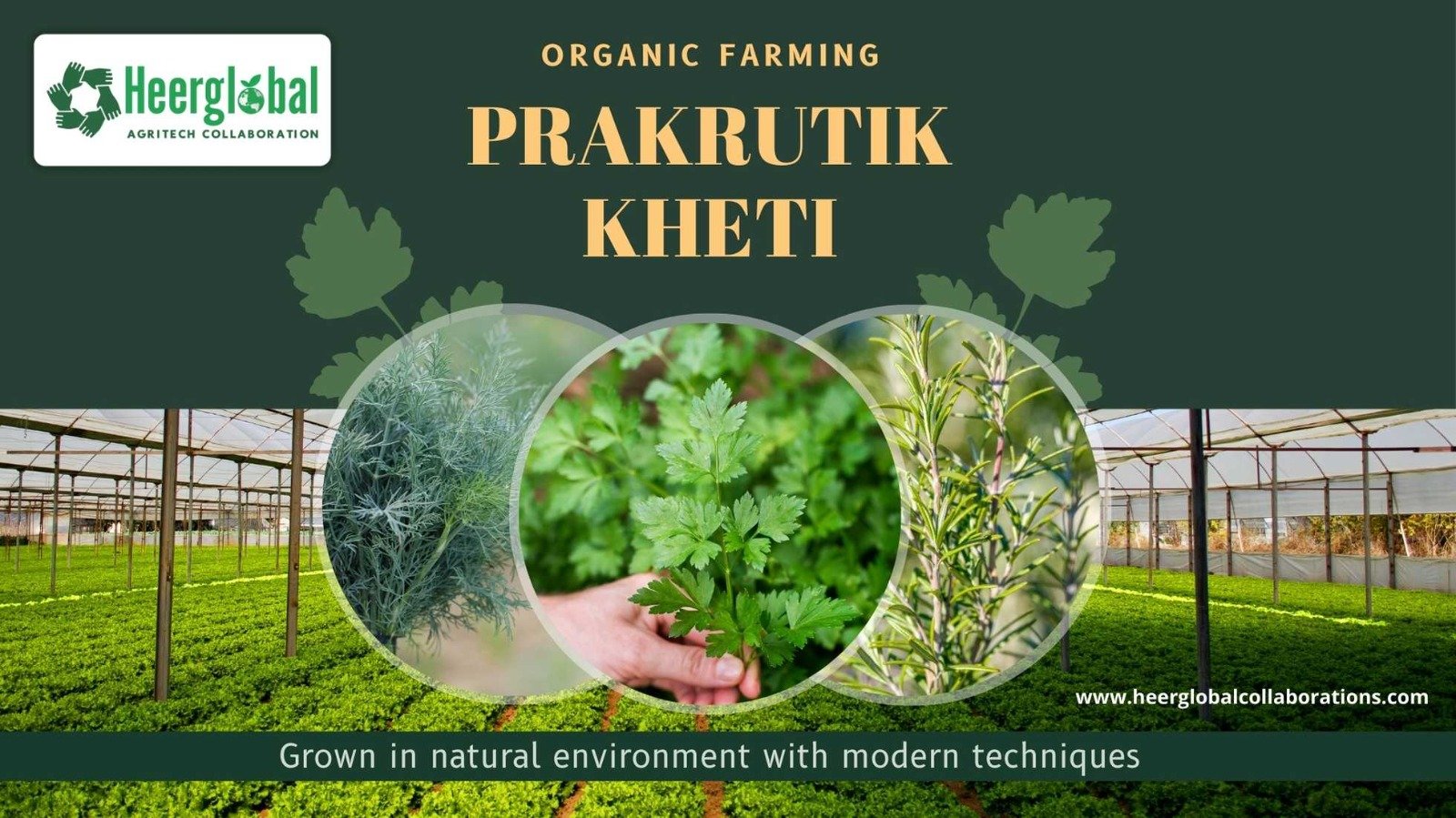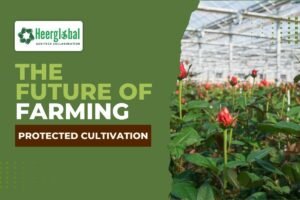Exploring the Essence of Natural Farming (Prakrutik Kheti)
Natural farming, or Prakrutik Kheti in Hindi, represents a return to the foundational principles of agriculture—a harmonious partnership with nature that avoids synthetic inputs and chemical interventions. Rooted in ancient wisdom and contemporary ecological insights, natural farming embodies a holistic approach to farming that nurtures the land, preserves biodiversity, and sustains livelihoods.
Understanding Natural Farming: Natural farming advocates for minimal intervention and maximum alignment with natural processes. It emphasizes soil health, biodiversity, and ecological balance in fostering resilient agro-ecosystems. Unlike conventional farming, which heavily relies on synthetic fertilizers, pesticides, and genetically modified organisms, natural farming harnesses the inherent fertility of the soil and the symbiotic relationships among plants, animals, and microorganisms.
Key Practices of Natural Farming
- Elimination of Chemical Inputs: Natural farming rejects synthetic fertilizers, pesticides, and herbicides due to their adverse effects on soil health, water quality, and human health. Instead, farmers employ organic methods such as composting, mulching, and green manure to enrich the soil naturally.
- Soil Regeneration: Central to natural farming is soil regeneration, a process that rejuvenates depleted soils and enhances their ability to support plant growth. Techniques like cover cropping, crop rotation, and agroforestry improve soil structure, water retention, and nutrient cycling, ensuring long-term sustainability and resilience against environmental stress.
- Biodiversity Conservation: Natural farming emphasizes biodiversity as a means to enhance ecosystem resilience and productivity. By cultivating diverse crops, incorporating native species, and creating habitats for beneficial insects and wildlife, farmers mitigate the risks of pests and diseases while promoting ecological balance and resilience.
- Indigenous Knowledge and Tradition: Natural farming draws upon indigenous wisdom and traditional agricultural practices that have sustained communities for generations. By preserving local knowledge, cultural heritage, and traditional seed varieties, farmers safeguard biodiversity, promote cultural diversity, and foster community resilience in the face of globalized agricultural systems.
Benefits of Natural Farming
The adoption of natural farming offers numerous benefits for farmers, consumers, and the environment:
- Enhanced Soil Health: Natural farming builds soil organic matter, improves soil structure, and enhances nutrient availability, resulting in increased yields and resilience to climate variability.
- Reduced Environmental Impact: By minimizing chemical inputs and promoting biodiversity, natural farming mitigates soil erosion, water pollution, and greenhouse gas emissions, contributing to climate change mitigation and adaptation.
- Improved Human Health: Natural farming produces nutritious, chemical-free food, promoting human health and well-being while reducing the risks of pesticide exposure, foodborne illnesses, and chronic diseases associated with industrial agriculture.
- Economic Viability: Natural farming provides economic opportunities for small-scale farmers by reducing input costs, increasing market access for organic products, and fostering community-based value chains and local food systems.
you can also refer Organic Farming Training Guide for more details
Challenges and Opportunities
Despite its virtues, natural farming faces challenges such as limited access to resources, technical knowledge, and market opportunities. However, concerted efforts by governments, civil society organizations, and agricultural institutions can overcome these barriers and promote the widespread adoption of natural farming as a sustainable alternative to conventional agriculture.
Heerglobal Agritech Collaborations Pvt. Ltd. is a firm that unitedly works for the farmers provide sustainable solutions with training by joining hands with various groups, NGOs, societies, corporates, and also with the government.
Conclusion: In a world grappling with climate change, environmental degradation, and food insecurity, natural farming offers a beacon of hope—a pathway toward regenerative agriculture, ecological resilience, and food sovereignty. By embracing the principles of natural farming and cultivating a deep reverence for the land, humanity can forge a more sustainable and equitable future for generations to come. As we embark on this transformative journey, let us honor the wisdom of the ages and tread lightly upon the Earth, in harmony with nature and in service to the greater good.




